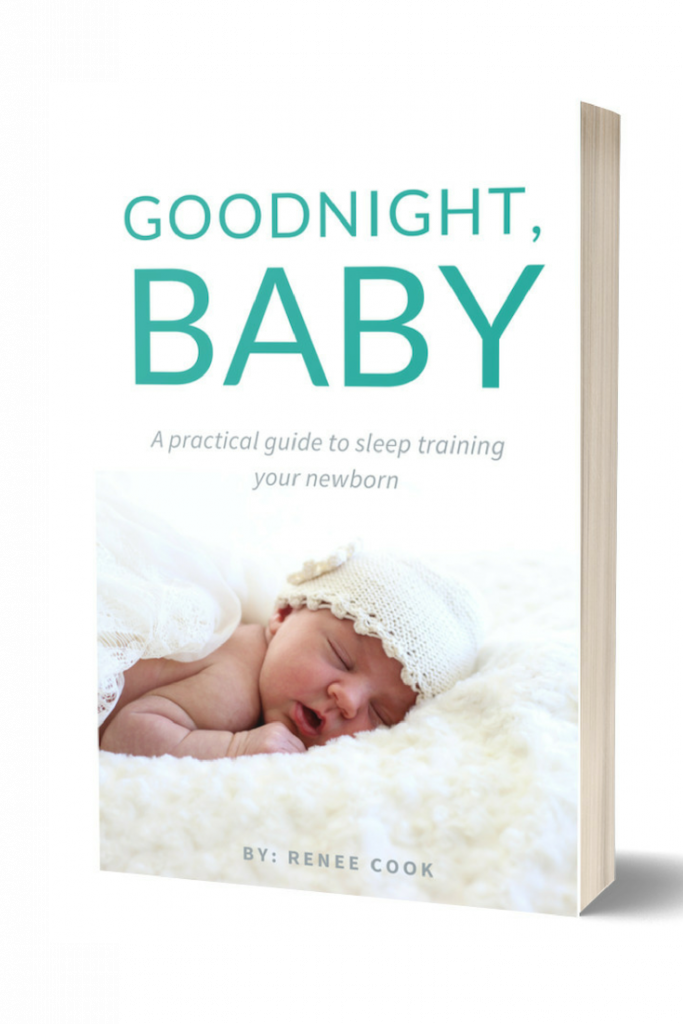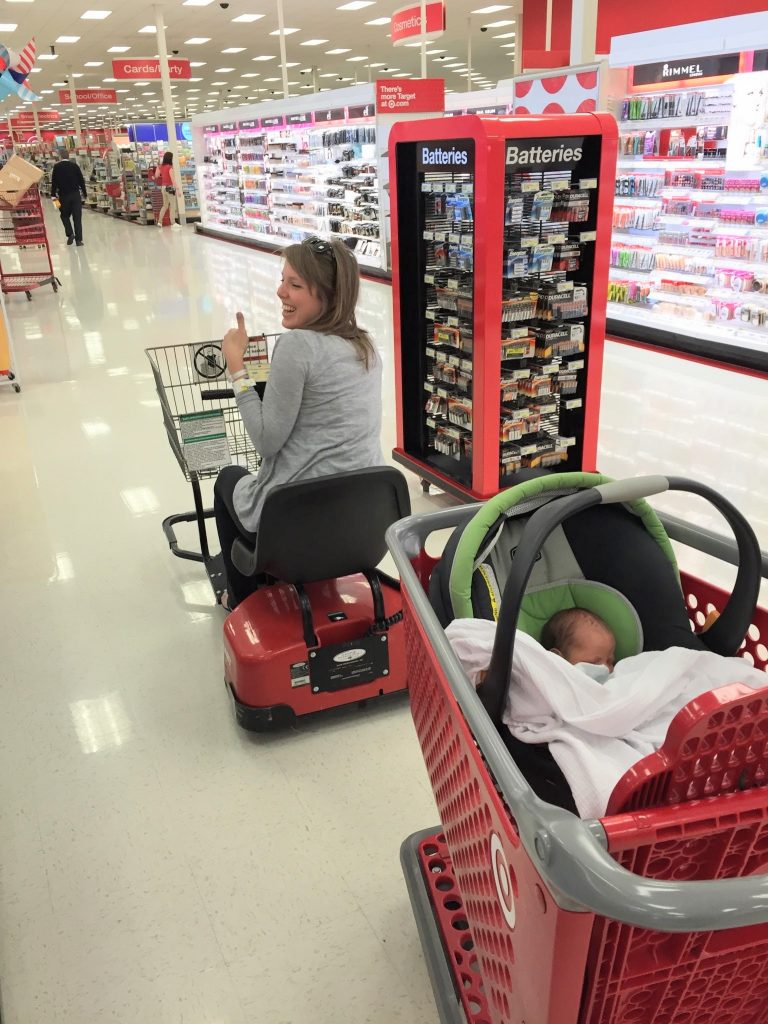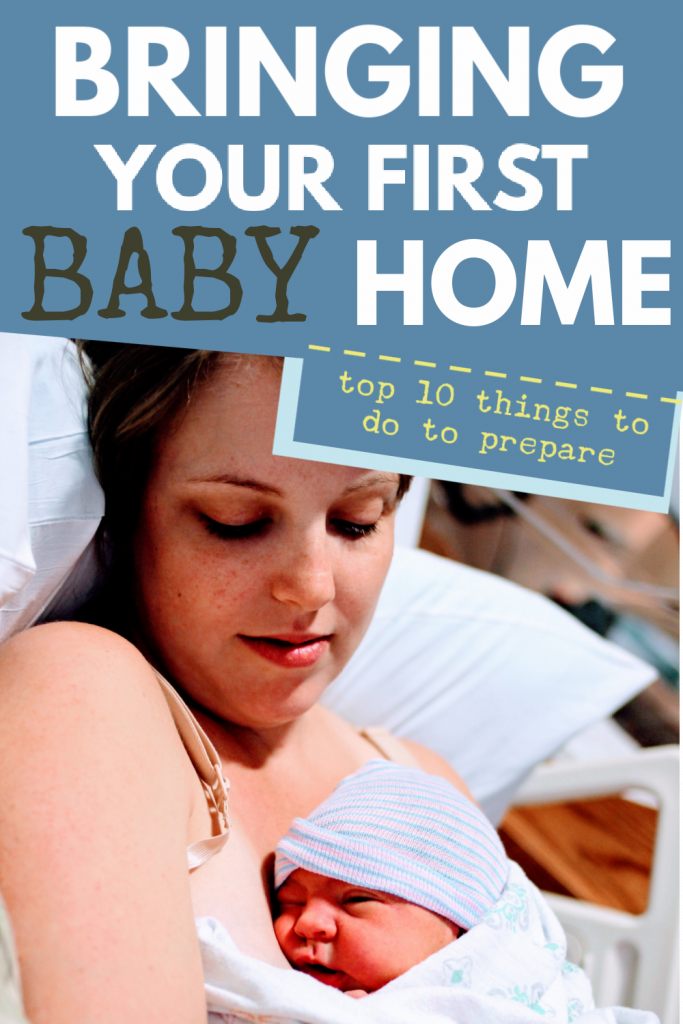Some of the links on this page are affiliate links. When you make a purchase through an affiliate link, I earn a commission at no cost to you. See my entire disclosure policy for all the boring details.
In this post, you’re going to learn most of what you need to know about bringing baby home from the hospital.
We’ve brought 4 babies home from the hospital, and we were definitely more prepared for those first few newborn weeks with the fourth than with the first. The first couple weeks after bringing a new baby home are so exhausting, but also so precious.
I say “most” because the truth is, having a newborn is one of those things in life that you have to just go through in order to fully understand it.
That doesn’t mean preparation is in vain though!! It’s definitely worth getting an inside scoop from a friend who’s been there. Or in this case, a stranger on the internet 😉
These 10 tips and resources will help you get ready for leaving the hospital and bringing your first baby home from the hospital. Let’s dive in!
1. Taking your baby home from the hospital in a car seat
Funny story – After a relatively traumatic birth with our first baby, we were all cleared and ready to leave the hospital. My sweet husband pulled the car up with our click & go infant car seat base loaded in the back seat. Of course, we’d researched the “best” and “safest” car seat (turns out, many of the options will do just fine).
It was the dead of winter so we had a newborn sized snowsuit & a cute newborn coming home outfit to boot! We were ready.
Imagine his embarrassment when the nurse frowns & lays into him about how you can’t put a baby in a snowsuit in the carseat and the infant headrest was in the wrong position, and the buckle wasn’t tight enough, and “the baby will fly right out of the straps if you crash on the way home with how loose this is.”
Talk about nervous new parents! I think he drove home at a top speed of 10 mph.
Needless to say, you need a properly installed carseat. For a newborn baby, the car seat should be rear-facing and designated to be used with babies under 12 pounds. There are two types of carseats you can use for a newborn: infant carseats & convertible carseats.
Your 2 Car Seat Options Explained (Finally!!)
Infant Car Seats often have a handle of some sort so you can carry them around outside the vehicle as well. They are usually certified for approximately 5 pounds up to 22-35 pounds, depending on the make & model. This Graco is one of the best, sturdy, lightweight infant carseats under 200$. It’s very highly rated & easily clicks in to the accompanying stroller too. I loved using an infant car seat with a stroller system!
Convertible Car Seats
These often go well past 35 pounds and are designed to be used facing backwards up to a certain age/weight (~1-2 years old, 25 lbs +). Then, you “convert” it to a front-facing car seat and sometimes even to a booster.
These are the exact convertible car seats we’ve used & loved for all our kids. We’ve bought them for grandparents as well. They are actually good for 5 lbs through 90 lbs, so if you don’t plan to use an infant carrier as pictured above, then you can just get this one carseat for birth through 8-10 years old!!
We love them because:
- They’re extremely easy to get in and out if you need to move them (say, to Grandma’s car)
- The straps don’t get twisted.
- They are heavy duty
- They’re comfy!
We’ve tried some cheap-o, junky car seats over the years, and I highly recommend just getting a good one to begin with. It makes so many things easier.
If you don’t plan to carry the baby around in a car seat, then just get that one pictured above – it’s the only carseat you’ll ever need. It’s very narrow and works well if you think you’ll eventually fit 2+ carseats side by side in a smaller vehicle.
Whichever car seat you choose will probably come with a newborn insert to help the baby fit more snugly, but the car seat will still seem enormous compared to the baby. It’s okay! Pull that buckle tight, place the chest buckle right over the teeny-tiny sternum, and ask for help installing the seat and/or base if you’re not quite sure how & where it goes.
2. Clothing for Baby & Mom
For Mom
You’ll likely want something loose fitting and comfy as a newly postpartum mother. I went for lightweight yoga pants with a loose elastic waistband and a lightweight sweater I could easily take off. Plus a nursing tank + sleep nursing bra.
- favorite postpartum yoga pants – lower rise joggers with pockets | over the belly yoga pants | over the belly jogger lounge pants
- super comfy postpartum sweater/ wrap cardigan – you’ll want something easy to take on an off since your body temperature will go nuts for the first few weeks; it’s also perfect for keeping nursing tank easily accessible if you plan to breastfeed
- all-time favorite nursing tank
- super comfy nursing bras for the first few weeks while your body is adjusting to milk coming in – pullover | seamless nursing bra
For Baby
It’s tempting to over-bundle your baby. (Remember the aforementioned snowsuit? Woops!)
A cotton outfit with sleeves will be fine. If it’s the dead of winter, a fleece zipper pajama outfit would work well, with a hat. There are tons of inexpensive cute carseat covers that keep sun, wind, and cold out of baby’s face too. I love the basic zip-up footie jammies from Target! Cotton footie jams | fleece footie pajamas
(Repeat after me – zippers are your friend! No snaps!!) 🙂
3. Have your baby necessities already purchased and waiting
The last thing that you’re going to want to do when you’re bringing home a newborn baby is to have to stop at the store for some diapers. Trust me, this happened with my 3rd. He came 3 weeks early and we didn’t have newborn diapers or baby boy clothes! Oops again!
For some reason, I opted to go in and help pick out the diapers & boy onesies rather than wait in the car. But of course, having just pushed out a baby, I couldn’t quite waddle all the way around Target, so I had to use a rider-cart thing.
My recommendation? Snag the diapers, wipes, onesies, zip-up jammies, pacifier, velcro swaddler, swing, bassinet, bassinet sheets, and carseat by 30 weeks! Those are our top 10 absolute essential things I’d suggest buying before bringing home a new baby. (Those links are my favorite brands/ preferences.)
I also love this CJ’s BUTTer cream for baby care. It’s safe & works on every single rash or issue they’ll ever have. The large container (6 oz) will last FOREVER. We had it for 3 years & 2 babies.
For mom – you’ll want nipple cream, sleep-comfy nursing bras, nursing pads, nursing tanks, a sweater that’s easy to take off (your hormones & body temperature will go NUTS during the postpartum weeks),
If you’re planning to try breastfeeding your little one, you’ll want a pump & some accessories. Call your insurance between 28-32 weeks pregnant (ish) and ask them how to go about getting your pump. The pump will come with the must-have accessories for it. You can buy more once your baby comes home and you know how much pumping you’ll do. I’ve used both Medela and Spectra & liked them both.
4. Prepare to Slow Down & Snuggle.
Any other to-do list lovers out there? I was so excited for my maternity leave with the first baby… oh man, I was going to get so much done. We had a sleep training plan in place, so obviously the baby would sleep and I would sleep & it would be like a vacation.
Not.
This point is especially important if you are used to a fast-paced, highly driven lifestyle… a new baby takes a LOT of time. It’s shocking because all the baby does is eat, sleep, poop, and burp.
But, it’s all extremely time consuming!
The first night and days that you’re home with your baby are meant to be spent bonding. There are some cultures that literally seclude the mom and new baby into home isolation to let them really focus on one another and bond.
Don’t plan to knock out some ultra catch-up-on-your-life to do list. You’re going to feed & care for the baby. You’re going to pass the baby around the grandmas and aunts. You’ll wash laundry that’s been pooped on and eat a lot of food because breastfeeding requires a lot of calories & causes explosive newborn poop!
You’re going to rest & let your body recover from, ya know, growing & birthing another human being. You might be in pain. You will likely be physically exhausted & mentally drained.
It’s okay! You’re not superwoman, and the pace of life may feel significantly slower than you’re used to. Try to plan ahead for that and enjoy your baby.
5. Physical Recovery: Limit Outside Activity if at all Possible
If you’re wondering when you can bring a newborn out of the house, this is really going to be a judgment call on your end. Keep in mind that your newborn baby doesn’t have an amazing immune system yet. This means that they are more susceptible to germs. On the other hand, as you’re nursing them, they are building immunity to what you’re immune to. It’s kind of amazing!
Still, it’ll make your life easier if you keep the baby home the first couple weeks as you’re adjusting to all that’s required for newborn baby care.
If you don’t have to run errands, don’t. If you don’t have to go out to pay bills, don’t. The only times that you’ll need to leave the house for the first week or so are:
- when you take your newborn back for their first doctor checkup
- for help nursing if you want to see a lactation consultant. (I did that with our first and it was super helpful!!)
- on walks once you feel physically able
6. Emotions, Feelings & Questions
Being a new parent is hard. Really really hard. I know it feels like seasoned moms have it figured out. They make it look easy. So you read a couple recommended books and think, “Okay – we got this.”
Then, your baby won’t stop crying or they seem to want to eat every 45 minutes and you think, “What’s the matter!? Why can’t I figure this out?”
Listen, it’s hard. All new parents and couples go through an adjustment period. It’s okay.
If you have a question about something, ask. This isn’t the time to be shy or worry about what others are going to think. Ask your mom or mother in law or friend or pediatrician.
The first few days of having your new baby at home are probably going to be full of questions and sometimes even self-doubting. I’d recommend staying off social media at first. I know that sounds weird, but it’s so easy to compare yourself to other moms out there. Rather than scrolling, use your downtime or nursing time to jot down some thoughts and feelings. (Use voice-memos or become really good at one finger typing on your phone). Pray over your baby, rest, meditate, whatever.
Also, get comfortable asking questions or telling someone that you need help because one of the biggest things to learn about taking a new baby home is that you have to take care of yourself as well.
Your mental health and happiness are so important and it trickles down to your newborn as well. Asking questions, asking for help, or just saying that you need a few minutes for a mental break is okay.
Being a new mom is tough enough as it is but when you add in the pressures and stresses from the outside world, it can easily become a downright overwhelming feeling.
7. Baby Blues & Postpartum Depression
Speaking of overwhelming feelings, it’s really important to pay attention to your mind and body during postpartum recovery. Postpartum depression is very common. Many moms go through a period of doubting themselves, wondering if they’re suited to care for a baby, feeling angry or upset with their baby or partner, etc.
Besides undertaking an enormous life change (that feels all-consuming and at times terrifying), your body is recovering from a 9 month process of growing and ejecting a human. Add physical pain & exhaustion, possible disagreements between the parents, the mental stress of a crying baby and a large dose of whacky postpartum hormones, and you have yourself what some doctors call the baby blues.
On one hand, it’s “normal.” Meaning, a lot of women experience this. You are not a failure if you experience sadness and/or large emotional swings after having a baby.
On the other hand, you might need some help!! A friend of mine does counseling specifically for postpartum women and sees how wonderful it is just for these new moms to have a safe place to share all they’re feeling and wondering. Your doctor or midwife might be able to recommend a good postpartum therapist. Or they might recommend temporary medication to help you manage emotions.
Pay attention to your body, your gut instinct and the people around you who love you. Say yes to all offers for help and know that this too shall pass.
8. Sleeping & Eating Schedules
It may be shocking to you how much time you spend thinking about sleeping and eating and pooping once your baby is home.
Try not to spend too much energy and stress on it now, but I would recommend reading a couple books and thinking through how you plan to approach your baby’s eating and sleeping.
It’s nice to think through those types of things as a couple before the baby is crying in the middle of the night and you’re both exhausted.
Some parents choose to follow the baby’s lead and go with the flow. Some choose to stick to a feeding and sleeping schedule. (And some set out to do one and end up doing the other.)
Personally, we’ve opted for the feeding/sleeping routine approach. We sort of stumbled into this approach and it has been AMAZING for our family. So much so that I wrote a complete, but easy-to-read guide on the topic of baby sleep & schedules!! It’s gotten rave reviews & I get emails every day from new parents saying how this guide helped them. You can snag it here.

9. Choose a Pediatrician
You’ll want to choose a pediatrician for your child before they’re born! This pediatrician may be the one who visits the baby in the hospital too, depending on how your hospitals & doctors handle that. (Alternatively, your baby might be cared for by another doctor in the same practice or a pediatrician who works for the hospital.)
The best way to find a good pediatrician is to ask a couple friends whose parenting styles jive with yours. Then, call the offices of the doctors they recommend, say what month you’re due and ask if they’re taking new patients.
If you’re the first among your friends to get pregnant, ask for recommendations in a local parenting group on facebook & ask people to share why they like their pediatrician! Then, browse the comments you receive and call a couple offices. Go with your gut! You can always change in the future if it’s not a good fit.
Don’t forget to make sure the office is in your insurance network!!
10. Ask Your Insurance Company Some Questions
You’ll want to ask your insurance company at least 10 questions before taking baby home. I have a separate post about this that will be helpful for you if you’re not quite sure about the insurance side of having a baby.
Final Thoughts on Bringing a Baby Home from the Hospital
Your first days home with your first baby will likely be a crazy mix of exhausting, emotional, terrifying and amazing. You’ll spend hours just staring at this new little person wondering how you can instantly love them and also who decided it was a good idea to put you in charge of their life.
Allow yourself some grace. Bringing the baby home from the hospital can be stressful at first, but as you and baby get to know each other, and as you grow into motherhood, the baby thing gets a lot easier. Billions of moms before you have figured it out! You can too 🙂
Do you have any other tips for bringing home baby from the hospital? Share your tips or questions in the comments below. I read and respond to every single one!
RELATED POSTS:







